
He gradually crystallized his own attitudes to general questions such as the relation of science to religion and the connection between causality and free will. Planck believed in a supernatural being, omnipotent, omniscient, and benevolent. "Religion is the link that binds man to God"-resulting from "the respectful humility before a supernatural power, to which all human life is subject and which controls our weal and woe." Questions of ethics are outside the realm of natural science. He believed in the absolute values of ethics, e.g., "truthfulness [except for conventional, social morality] is the noblest of all human virtues."
The existence of God is solely and exclusively a matter of faith -- a religious faith. He was favourable to all religions, but he himself chose Christianity. He did, however, regret the Church's demands for unquestioning belief, which served to repel questioners. For example, he believed "the faith in miracles must yield, step by step, before the steady and firm advance of the facts of science, and its total defeat is undoubtedly a matter of time."
Planck regarded the unity and order of religion as similar to that of science. Hence he regarded these as compatible inasmuch as they are logically separated; they both have the same goal, i.e., "recognition of an omnipotent intellect ruling the universe." They agree that there is a rational world independent of man, and that the character of this world can not be known directly, but only indirectly recognized or suspected. On the other hand, they do differ; in the case of religion one deals with a personal God, given directly and immediately, whereas in the case of science one has only sense impressions. Thus science enables man to learn; religion requires him to act. Science operates primarily with the intellect, religion with sentiment. Science is objective in that it is concerned with truth or falsity in the material world; religion is subjective in so far as it deals with values, i.e., what ought or ought not to be-good or evil, noble or base. Yet they both oppose scepticism and dogmatism. In their common, overlapping area, however, they do move toward the same objective-like parallel lines toward the point at infinity. "No matter where and how far we look, nowhere do we find contradiction between religion and science"-there is "complete concordance."
Rene Descartes, who also created the scientific method, that was eventually synthesized into one method with Francis Bacon's contribution. He's methods were actually influenced through dream sleep as well, which once upon a time was seen as a separate sense.
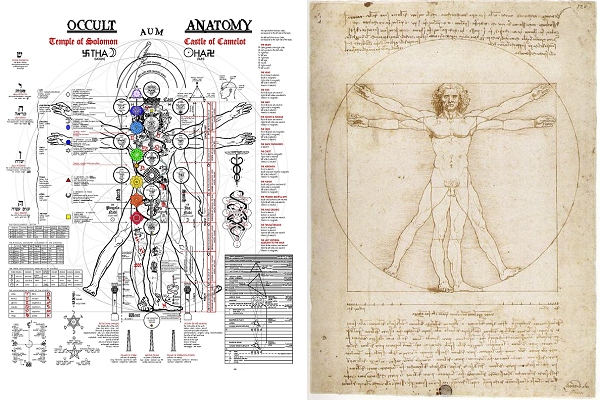
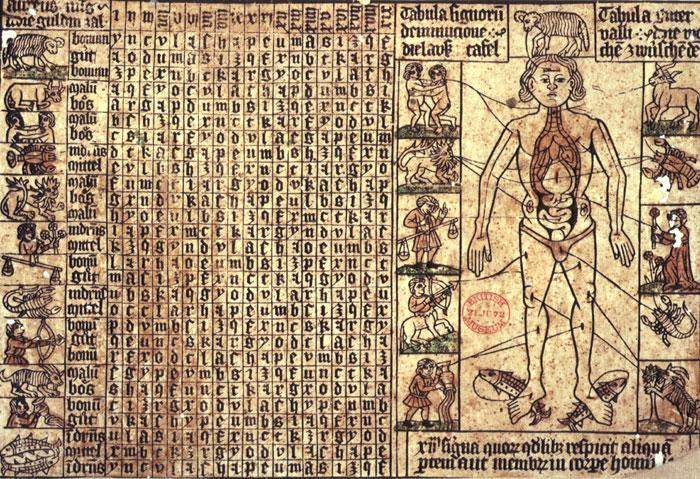
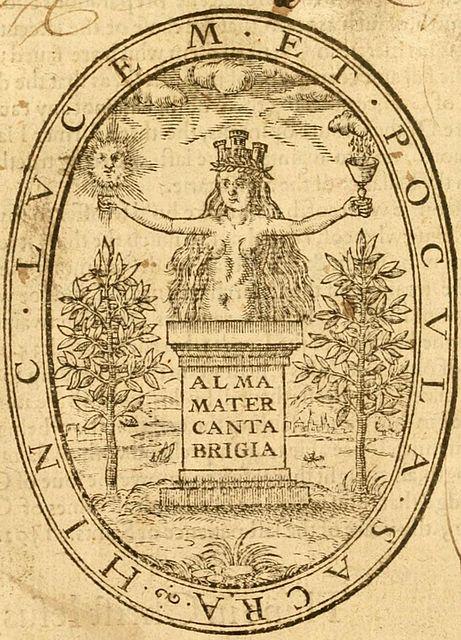
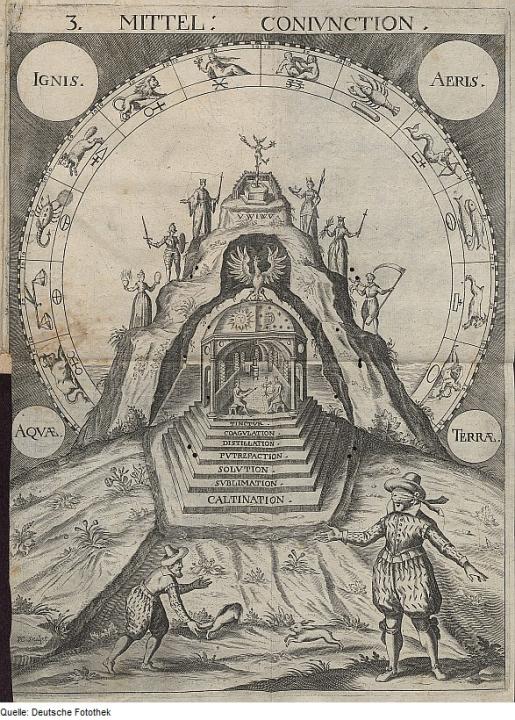
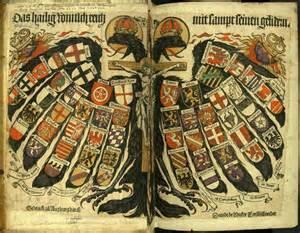
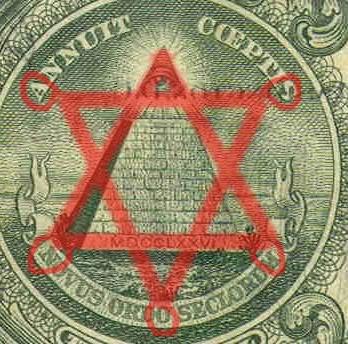
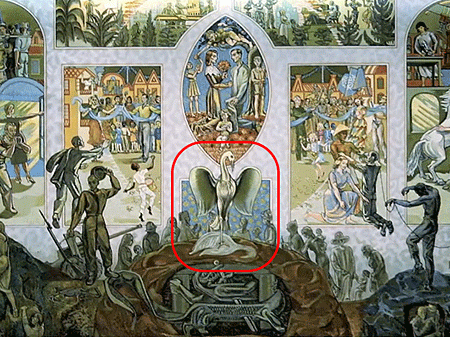
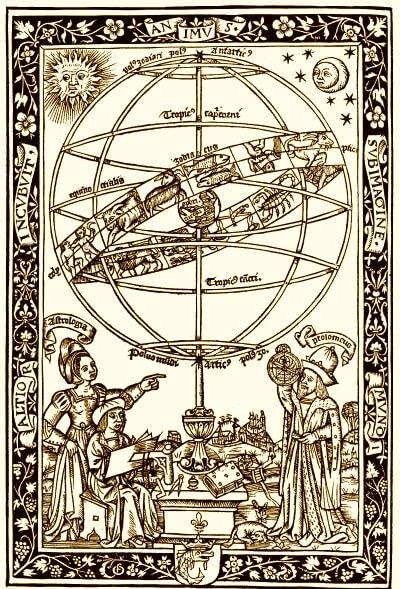 This post was edited by kjames at December 12, 2019 7:43 PM MST
This post was edited by kjames at December 12, 2019 7:43 PM MST
Um, some issues here..
Einstein stated on many occasions, and with no lack of clarity that he did not believe in a supernatural god, but shared his admiration for “Spinoza’s God”, which is to say the assemblage of physical laws of the universe. You hinted at that.
While Newton was indeed a believer (as 17th century Europeans who valued their freedom all were, just ask Galileo), he spent years of concerted effort, often in seclusion, attempting to formulate a mathematical proof of his God, but was unsuccessful at every turn.
The Garden of Eden fable has been amply debunked by a host of sciences, to the point that no self respecting historian renders it as anything but an allegory. No Garden, no Eve, no magic apple, no Fall.
Overall, James, you appear influenced by the same fallacy so many other theists succumb to: That answers not provided by science are default proof of a God.
Have you read Einstein Don? Despite what you say about Galileo he was not an atheist Don. With regards to the Garden of Eden fable it should be read as a moral story containing truth. When you read the story, just like in Buddhist stories, just like in Aesop's fables you will see it contains truth and it will teach you something about your own nature. Just as if you read the New Testament it will expose the inner battle of mankind. I am not influenced by some fallacy Don, see for these scientists who looked at this grand design of life and saw patterns, and mathematics, and became awe inspired by what they found, they couldn't not fail to see a designer. The mystery religions have continued throughout the ages and these were considered inner teachings for the alchemy of man and they still exist today, but some minds grasp this and some don't.
Albert Pike warned about the coldness of Atheism, and the barbaric nature of it, if truly accepted in its real meaning. See if a person is an atheist they often appear to gravitate to logic and reason, without any sense of the inner spiritual or emotion, they will coldly disregard it. In that perspective a poetry of love is reduced to a bunch of chemicals, altruism to a selfish gene, and it becomes very cold and clinical. I was an atheist and a militant one for over nine years, I actually argued that I knew there was no God. Then as any person should, I examined my own argument, my own viewpoint, and those in who I relied upon, I looked into these peoples histories into their motivations, into their associations, I find atheists swallow what they read, as much as the religious people they make the same accusations towards.
In atheism we are reduced to a bunch of chemicals and firing neurons, how much meaning in life does this give you? In atheism the world started randomly, and will end, and everything in between will add up to zero, there is no meaning to life, and the one thing that drives man is meaning, most of things we do is for meaning, and yet you want me to believe life has no ultimate meaning? And it cannot in a world where you are governed by the material, even your answer to me is an example of your programming based on influential factors, and everything you do here, and everything your children do here, and everything anyone does here, whether murderer, rapist, saint, nurse, charity worker, is driven by chemicals and neurons, and will end in zero when the world ends? There will be no purpose to it at all, and that is the real honest atheist view, it has to be nihilistic. Just because you may “feel” like the world has meaning, doesn't mean it does, in fact it cannot in a material world view. You exist for no reason, everything you do will result in zero, and it is a belief of meaninglessness which I find completely opposed to our own nature.
In a world where you do not connect yourself to something greater than yourself, where you are merely material, a number of things result:-
1) Morality is subjective, I use to get angry at people that told me my morality wasn’t inherent, but when you look at history it tells you it is subject to what is deemed acceptable at the time. Once upon it was perfectly ok to treat others like cattle, and hang people from trees and in the public square, it is still ok to behead people or subject them to the electric chair. We use to flock to the Colosseum and watch people kill each other for entertainment. In Egypt they tried to avoid others jealousy, or envy, by keeping each other content for fear of being subject to the evil eye, they did believe that others affected their wellbeing. For me I believe that we are given a conscience, and that does judge us, how can we not look at another and not reflect upon ourselves, however this can be overridden by society.
2) In a practical sense you are left with human rights, humans give other's there human rights, and this means the same humans can take those rights, which we see happening all of the time. You have subscribed to other's giving you your rights and as such they can take them away, they are not grounded in God given rights, i.e. rights by BIRTH and not by legal or lawful manmade terms. Bearing in mind we live in a world where an elitist class see's you as less than they are, this is seen in Darwin’s Origin of the Species by Natural Selection for Preservation of the FAVORED RACES. Darwin supported eugenics, he didn't like the "negro" who he described as being the closest relative to the gorilla, and he didn't like the Irish who he described "breed like rabbits." He didn't like the common man outbreeding what he classed himself as the intellectual and upper class. However, he relied on the eugenics of war, poverty and disease to settle this imbalance. Today this is still the main concern of the elite, how to keep the herd so they can live off our labour, while distracting them with the rewards of consumerism, but all the while controlling the class system, and the numbers, this was outlined clearly in the book The Leviathan which came out in the enlightenment. It is easier to control the minds of men, than their bodies. Thomas Huxley, who was Darwin's Bulldog, (and also prominent member of the X-club) is the grandfather of Aldous Huxley who wrote A Brave New World and other books depicting the future, his brother Julian Huxley was a eugenicist and he has had a massive influence on society, all the key characters do. Aldous funded the Esalen Institute which is where Eastern practices were accumulated with Western, most of these practices you'll see in communist countries because they don't threaten the system with individuality. The student of Aldous Huxley was George Orwell, who wrote 1984, a book about a Big Brother society, an Orwellian nightmare where the individual loses his privacy. So what I am saying here is that an atheist's mind-set has been governed by someone else's agenda, and if they can convince you that you are no more than a material robot, then how much value can you really place on your own life? In this manner it is easy to sacrifice life by reducing it to a lesser value. Even George Washington who was a 33rd degree freemason and reached apotheosis stood by the saying Exitus Acta Probat meaning "The end justifies the deed," which is shown on the Washington Square Arch, which is a replicate of the Arch of Titus, Titus also reached apotheosis, and that arch was built in celebration of the destruction of the second Temple of Jerusalem which happened on the 9th of Av, the 9th of November, numbers are important to them and are associated with religion no matter how much you want this to be a secular society.
The mystic attempts to deny the world in order to find reality. A curious type of personality. A way out or a way back to a desirable to state to satisfy absolute truth. For them an unknown world exists outside the boundaries of sense. All men have fallen in love with the veiled truth for most is a passing passion. Others devout lovers of reality. No one has ever been able to assure that they’ve seen face to face the reality behind the veil. The spirit of man, entangled amidst material things, for which God is behind. Mystics are the explorers of the spiritual world, with no right to deny validity to their discoveries, merely because we lack the opportunity or courage necessary. Purification here is the gate of knowledge, come with minds cleared of prejudice and convention, and taking the visible world for granted, under the assumption that science is real and metaphysics is not. Can we descend into our nothingness and examine for ourselves the foundations of all possible human experience, before we are in a position to criticize the buildings of the visionaries, poets and saints? Criticism of reality is the business of philosophy.
Man still demands proof based on the reception of his five senses, he doesn’t accept that he is limited, the mind filters out much of what is happening so man can never really grasp reality, he is limited as a receiver and cannot reflect absolute reality and so much of the message is lost, or aspects of the world we can never know. The structure of the world is limited by our own personality, to know oneself is to know ones universe. All we know are the stars are bright and the grass is green, but this cannot be the external world, but only the self’s projected picture of it, a work of art not a scientific fact.”
Echkart quote – “The soul can only approach created things by the voluntary reception of images.” Imagine if we heard all colours and saw all signs, when senses are fused? The universe is a collection of much thought and distorted by the thinker. Science equals the preservation of life, the evolutionary scheme by human mind and opposed upon by the obedient universe. Despite filling the basic requirements food etc, man is not content. Questions are left unanswered, “Why do conditions of mental, hurt the self? Why do we have the capacity of sorrow and happiness? Evolution fosters long pain, why? There is no need for us to suffer the world’s woe from evolution. Pain indicates a profound disharmony from the world and self. Pain and anguish are life’s guide. Music and poetry, sensation of awe, are just as difficult to account for. The skylark speaks to us and sends us up to heaven. Religion, pain and beauty, the spiritual making itself known. Some veils are stripped off and reality peeks through, but our world is limited to senses. The mystic seeks union with reality, that which they call God, or the eternal and that can only be found by taking into account the inner world of man.
But even science tells us that once we break down the material realm we are dealing with energy and vibration, Tesla said it himself “If you want to find the secrets of the universe, think in terms of energy, frequency and vibration. A smart man, my favourite scientist, who died penniless, but whose inventions influenced 80% of our technology today, these men were driven by something else, they dared to think differently, and it didn’t end at the material realm.
https://www.youtube.com/watch?v=wvJAgrUBF4w
So much there to both agree and spur debate, Kjames, wouldn’t it be a hoot for you and I to have a sit down and exchange ideas.
Rest assured, we concur on a great many things; although your account of atheism as you relate it —and I can see how this position was arrived at— is not reflective of my experience at all.
As we’ve touched on the Eden story, yes, a moral parable, perhaps several, can be found there; but lo, a plausible history of how life and the universe came about, cannot. Too much was made of this fable that still adversely taints how people perceive the world (and how they vote), IMO.
As a non-believer, I have gained a profound appreciation of how precious this mortal life is, in realizing how fragile, finite and unlikely it all is, since it is also unlikely that an additional post mortem existence awaits when this one ends.
This stokes an imperative to make something of oneself in the now, to seek and create a purpose; not to just presume that there is some preordained, overarching purpose, per the alleged dictates of invisible beings. Hoping human life has a larger purpose in the scheme of the cosmos doesn’t make it so (either).
Life is what we make it, the purpose of our life is what we assign to it. To allow oneself to be convinced otherwise is buying into servitude.
I appreciate your feedback and the effort you put into your response, it made for good reading (for a change on this site!), there is so much to touch on, and I look forward to future conversations.
Don, I read the bible the same way through atheists eyes, and I mocked and ridiculed the ridiculousness of it, the morality of it, but that is not the way to read it, the Old Testament and New Testament is part of parcel of the mystery (as it states numerous times which was completely lost on me), and I find treasure in it when read as a story which reveals man’s nature and truth.
Like you I also held dear my atheism, and what I considered freedom from religion. But when I confronted with the reality of atheism, and that for me to be intellectually honest, beholden to the “logic and reason” we held so dear, I had to admit that regardless of feeling like life had meaning, that it could not in a world where I was merely governed by neurons and chemicals, this does make our life pre-ordained for we lack free will, there is no ghost in the machine. And where whatever we do in this life will still amount to zero when the world ends, it will count for nothing, tell me how can life be precious when these are considered? How can life be precious without meaning? I was also confronted with the motives and influences of the men that gave us the way to atheism, who were not atheist themselves, and it was planned and did have a motive. I was confronted that to be an atheist I have to delude myself and ignore painful truths, and suddenly the cold and clinical nature of it and what that can lead to was laid bare, and this is what we offer the theist, no wonder they do not want what we have, in all rationality we could talk ourselves out of existence. As such, I find the atheist is beholden to the same trap of delusion that it accuses the theist of in every way.
The difference being I do now believe man is a part of something much larger than itself and this is merely from experiencing the world, like this when the mind is so engrossed that I'm not even aware that I exist, and I feel pulled into something much larger, and my experience encompasses something far reaching the limits of this material realm, when my heart is so engulfed by the wonder and awe of this life in which we see meaning, we want meaning, we don't do anything without meaning, and for me, I trust that part of me knows something that maybe my limited senses cannot register, there is something in me that can, this is what the mystics if in the right time felt a part of, something that changed them. The same way as when you make love and do not know where you start and where your lover ends, to feel joined enmeshed, a loss of self but a fullness of love. We are influenced by everything in this life and every action affects each other, there is a flow to this life, there is a movement, and rhythm and pace, a song, that speaks to me in a way atheism never could, this life is not cold and clinical, and this is why I understand the philosopher, the poet, the mystic, and the saint.
This post was edited by kjames at December 14, 2019 8:47 PM MSTWhat I read is that the particular reality evoked by the atheist position was a portrait of the world that you could not embrace, as you say for intellectual honesty, but I’ll posit it was at least as much for a sense of spiritual conflict.
You are obviously well versed on many facets of spirituality, and I suspect a personal quest for “truth” (I note its subjectivity) was undertaken, as it was with me.
In my case, the “cold and clinical” motif presented by material evidence and the vast corroborating data is something I can accept, that we as human mammals are no more significant to the scheme of this universe than an oyster. I find it arrogant and without merit to assert that we are somehow set above or apart from the same processes of rest of the natural world, because of our perceptions that there needs to be more, or that life has intrinsic purpose.
I wonder, as an atheist, did you not see the value of life on its own merits? That this all-too-brief and singular existence is all the more precious because it is the only one, because we get just one shot.
Give this life the purpose you want, whatever resonates with you, but at some point in years to come we and our deeds will likely be forgotten and unsung. Gone.
I get how formidable such a view is to one’s spirituality, and I can’t discredit people who find resonance, benefit, or solace in prioritizing spiritual matters or practice of their faith. For me, spirituality is observing the light of what we find inside us, what feeds our energies and directs our passions
When faith becomes an issue with my position is when ”revealed” ideologies are presented out of their element, as unerring fact, or for the particular benefit of the sects who administer said ideologies. Absent tangible evidence.
I am an engineer, both by training and by my nature, and I hold my worldview not be built upon nebulous uncertainties, mysticism, or logically-challenged dogma.
Kj, you seem to me less in thrall to scripture(s) than other theists I’ve encountered (to your credit, in my view) while you do display a strong grasp of it all. It was the very study of scripture -of various faiths- that sent me onto the path of reasoned non-belief, from which no narrative (internal nor external) has yet given cause to depart. I am not impervious to considering new findings, however, and remain willing adjust my position as compelling arguments may arise.
As a freethinking person, it is my hope that everyone can be cognitively receptive in this way.
"In my case, the “cold and clinical” motif presented by material evidence and the vast corroborating data is something I can accept,.."
Can you accept you are a receiver? Can you accept that as a receiver your experience of this world is limited? Are you willing to accept this limited reception as all the truth there is? And even though it can't possibly be, are you willing to press your viewpoint upon those who have the courage to even question this, in order to experience something profound and life changing?
"..that we as human mammals are no more significant to the scheme of this universe than an oyster."
How can you say life is precious on the one hand, but then make this your argument, that supports the fact that the material view of the atheist is on par with an oyster?
Not that I am demeaning the life of an oyster, the oyster fits very well in the tapestry of this life, but to even be having this conversation raises you above an oyster, an oyster a man would without thought take out of the ocean and devour. You viewpoint lessens the value of your life and everything else, it doesn’t raise it, it cannot raise it, and there’s a danger in that. Hence, I find it extremely sad and a big loss for someone to tie themselves to this limited view point as being all there is, for they are almost denying themselves the courage to experience something more.
I did see the value of life for its own merits as an atheist, because I believed my "feelings" about it, and not the logic and reason of the atheist material viewpoint. Once I made a choice to challenge all my beliefs and ideas, including atheism, to delve into it and not just swallow it, the stark nature of it was revealed and it left me cold and I found myself a hypocrite, I was accusing the theist of delusion, while having to delude myself. I was valuing life because I was contemplating the majesty of the delicateness of it, but there is NO MIND reflecting and overlooking the majesty of it in a material viewpoint, the mathematics read, 1 + 2 + 5 + 17 + 100 + 1000,000, + 11000,000 = 0, the ending value is 0.
And you admit this yourself, “in years to come all your deeds will be forgotten and unsung”, I'd go one further, everyone's deeds will be forgotten and unsung, and all these deeds were merely a programme of neurons and chemicals, not of free will. So you want to believe how wonderful this one shot of life is, why in the next breath saying it will be gone and forgotten, you are managing to contradict everything you say, and this is the contradiction of the atheist viewpoint against the feelings one experiences about life. Hence, as an atheist I demand it's all valuable, even though it cannot be. I believe my view is valid and clever, even though I am merely an accumulation of chemicals and reactions.
"For me, spirituality is the light of what we find inside us, what feeds our energies and defines our passions"
Now this is what I am talking about, this is the inner world of man that departs from the material self, and dares to soar, and this is the battle within. There's a poet, a mystic, and a philosopher inside you yet Don :)
I agree that the dogma from religion, as the dogma from atheism can repress mankind. There was and has always be an esoteric meaning, and then the outside ritual. Of course there are some that argue over words and languages. This is like describing the taste of a peach to someone, but never allowing that person to take a bite for themselves. This is like drawing a map, framing it on a wall, but never following it. Books and teachings are all very good, unless they merely make you subscribe to someone else’s viewpoint which causes you to stagnate, that is like tying the shackles to ones feet, this is in direct opposition to the philosopher, and the mystic.
My partner is a skilled tradesman and atheist, I like to say he is an artist, there is something beautiful and admirable over someone who dedicates themselves to their art, who seeks perfection, it is an honour to behold; that thought, that idea, that skill, and then the ability to apply and create something from a piece of metal, that creative element to look upon, and then fitting all those things together to make a much larger picture, it resonates with me, and he cannot doubt that it resonates with him to. The whole act of that dedication from start to finish, will never be a life wasted.
So even if an atheist wants to cling to what he receives through his limited senses, and his personality, as the only truth there is, and call this freethinking so be it, but there are others that want to come face to face with the reality beyond this veil, the eternal that can only be known by the heart not the mind, for it is the heart that goes out into unknown and brings home fresh food for thought, pure contemplation of reality, in comparison to those who think to feel. Practical not theoretical, mysticism is final and personal, the soul’s solitary adventure, tangled in the sense world. It is the heart and never reason that leads us there. Feet carry the body and affection carries the soul. And it is this difference that separates us, it is this that often makes us speak a difference language altogether.
I did explain my understanding that as one who has not heard everything, who knows more lies yet untold, I remain receptive to new findings, new compelling arguments. I could not consider myself a freethinker otherwise. This is of course how I came to question and shun the path of Theist faith. I have not regretted this awakening at any point.
I thought I spoke plainly about the value of life, to each of us and those we love, our time alive is priceless. Irreplaceable. A gift of the highest order. This is even before we determine what our purpose may be.
Our lives, in the grander scale of the cosmos, are blinks of an eye on a blue dot spinning about in an average galaxy. No pronouncement of faith can wallpaper over what the majority of evidence proves. Again, a moment of new revelation may await, but is not yet evident.
What is evident is that we both reached our positions by reflection and reason, but I suspect we asked different questions.
You remain receptive to the new findings and compelling arguments of who? Yourself or someone else? If you remain inactive in your own development, and allow yourself to be dictated to by someone else's viewpoint and don't even consider their motive, their history, or the consequences of that viewpoint, or any belief that you hold, then all you are doing is swallowing someone else's idea. I challenged every viewpoint I held, and it led to a profound experience which didn't come from anyone else's idea, because all I did was watch the ones I already held, and questioned them, even debated them from different viewpoints with others, like someone hammering metal to see if it would hold. I still do this today.
When I came to shun the path of the theist I should imagine the same way you did, I read Darwin, I read Dawkins The God Delusion (I have it on my shelf along with the Selfish Gene), I read many books that encouraged my atheist belief, that made me feel superior to the delusional theist and their fable. I thought I was free from brainwashing, when all I had done was be brainwashed by a different idea. I thought life had more meaning with atheism, because it made life more precious being a glimpse in time, until I was faced with the fact that there is no MIND to make such assumption, that is my doing in the here and now, because I want to feel it has meaning, and like you I was stuck trying to make life have meaning, whilst admitting in a material sense in which it will all end, like the destruction of an ant hill it could not. And like every honest atheist who clings to reason, rationale and logic, I had to then admit my belief was nihilistic.
When my life was pre-programmed by my chemicals and neurons (because nothing is outside of the material) how can I say my life is meaningful? And that if life begins with no meaning, and it ends with no ultimate meaning, how can I say it has meaning? No matter what I do, I cannot make it have meaning, no one can, because the score is always zero. Despite feeling like it has meaning, in the material it cannot, I couldn't have my cake and eat it. You either want to accept atheism and all it entails, or you do not, but you cannot make it something it isn't, and it is unfair to say to the theist that they are delusional, when you are also having to delude yourself, and this is all I am saying. I'm not saying that you don't value life, I am saying that atheist material belief cannot reflect this value.
So yes, I have definitely asked the same questions, along with different questions than yourself.